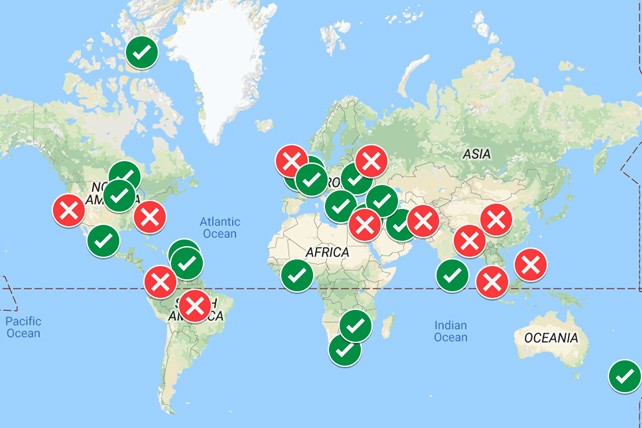Recent protests and violence at mandatory “drug rehabilitation” centres in Vietnam highlight the importance of the government’s decision to transform such facilities into community-based voluntary centres.
In November 2016, detainees at Vietnamese mandatory drug centres "pelted guards with rocks before smashing a brick wall and escaping" from a mandatory centre, VnExpress reports. This was followed four days later by 200 detainees breaking the walls of another such centre.
In recent years, there have been numerous examples of people detained in mandatory centres staging protests and breakouts, which in turn have occasionally led to violent clashes with law enforcement.
Fortunately for those interned in these facilities, the Vietnamese government announced in August that 52 of the country’s 123 state-run mandatory centres would exclusively offer voluntary services by 2020. The number of people held in mandatory facilities will be reduced from 67,000 to 20,000 during the same time period, authorities said.
The government hasn’t clarified what services will be offered in the newly-voluntary centres, but existing voluntary centres in Vietnam provide clients with individual consultations, methadone programmes, and other forms of opioid substitution therapy. Other harm reduction services are also offered in the country – for example, non-government organisations distribute sterile needles to people who inject drugs.
The gradual closure of mandatory centres appears to be part of an ideological shift among authorities.
Nguyen Trong Dam, the Deputy Minister of Labour, Invalids, and Social Affairs, told a conference in November that the government intends “to use many different methods of drug addiction treatment, but [is] aiming toward voluntary treatment”.
This marks a significant step towards improved human rights in a country where harms of drug use are rife, and treatment facilities have been sharply criticised for their repressive approaches.
The World Health Organisation estimates that 257,000 people in Vietnam have HIV, among which around one in five use drugs. The stigmatisation around drug use leads to individuals keeping their HIV status secret, and thus failing to effectively treat the infection, health professionals say.
In 2011, a Human Rights Watch (HRW) investigation into mandatory rehabilitation centres in Vietnam found that no “form of scientifically or medically appropriate drug dependency treatment” was taking place. Instead, detainees were subject to forced labour, physical abuse, and deprivation of food and water.
HRW has called for all “detainees in drug detention centres to be released”, particularly in Southeast Asia, where such facilities are prevalent.
The United Nations has also denounced mandatory drug centres; in 2012, 12 UN agencies deemed them to be “an unacceptable violation of internationally recognised human rights standards”.
Que Phong, who was detained in a mandatory centre for five years, described how he endured forced labour, regular beatings, and degrading treatment by the guards. On the day of his release, he started using heroin again.
Phong’s experience is not unusual; “rates of relapse to drug use” for people leaving mandatory centres were estimated in 2011 to be between 80 and 97 per cent.
Additionally, as TalkingDrugs recently reported, the results of a study in Malaysia suggests that people with problematic opioid use are significantly more likely to relapse if in a mandatory drug centre, rather than a voluntary one.
In light of the evidence against mandatory drug centres’ effectiveness, and the regular instances of detainees’ attempts to resist or escape them, the Vietnamese government’s step toward evidence-based drug policy has potential for significant success.


